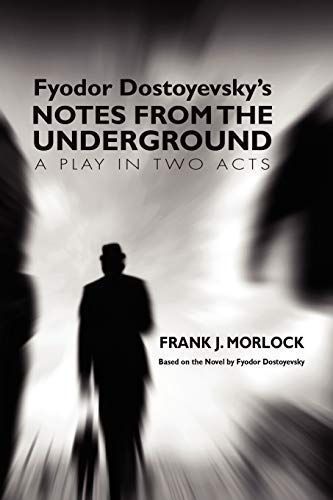
Notes from the Underground A Play in Two Acts
Based on the 1864 novel by Fyodor Dostoyevsky, Notes from the Underground features a highly charged encounter between the nameless narrator (the "Underground Man") and a prostitute named Lisa. A classic portrayal of the underbelly of Russian (and modern) society.
Reviews
conki@conki
Angeline Bien@abien
SONYA@madethroughlove
Luc@sevenless
luca@lucanotdead
Tanishq Khandelwal@tanishq
mint@filmcoeur
ᓚᘏᗢ@featworin
Rien@inkedverses
lauren@laureniscompletelyfine
emmy @esprkl
Brunella@pbrunella
🏹@kenzia
sani@luvterature
Molly M@molsmcq
mila@ccgsasaki
Atlas@atlast
Khatliyn@army_reader7
Lettuce Wrapped Cabbage Cat@lettucewrappedcabbagecat
Adam Scharf@beethoven89
Ziggy@karamazov
jack@statebirds
sy@villain
Alec Karlen@alec-karlen
Highlights
Jiya@m4ryl4nds
Page 97
Jiya@m4ryl4nds
Page 93
Jiya@m4ryl4nds
Page 70
Jiya@m4ryl4nds
Page 70
Jiya@m4ryl4nds
Page 23
Jiya@m4ryl4nds
Page 12
Conor Murphy@cnrmrphy
Page 131
Conor Murphy@cnrmrphy
Page 124
Conor Murphy@cnrmrphy
Page 102
Conor Murphy@cnrmrphy
Page 45
Conor Murphy@cnrmrphy
Page 33
Conor Murphy@cnrmrphy
Page 21
a. 💫@oonbim
Abhishek Singh@abhisheksingh
jana @osnapitzjana
Abhishek Singh@abhisheksingh
Abhishek Singh@abhisheksingh
Abhishek Singh@abhisheksingh
Aren B.@saintcruor
Santa@sanchh
mionne@heartcarving
brian yi-kun li@brianykl
Riya@julyseventh
Riya@julyseventh